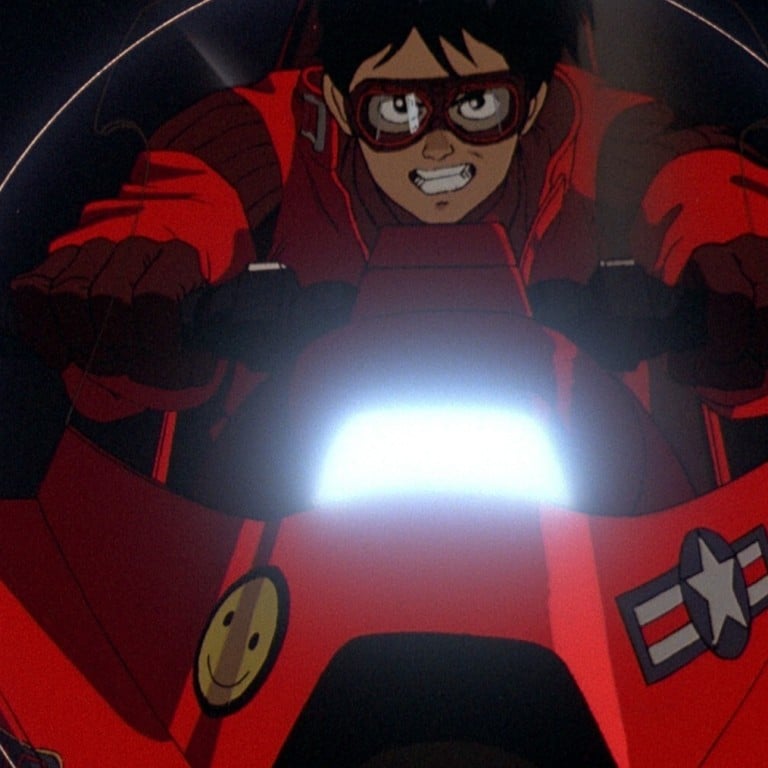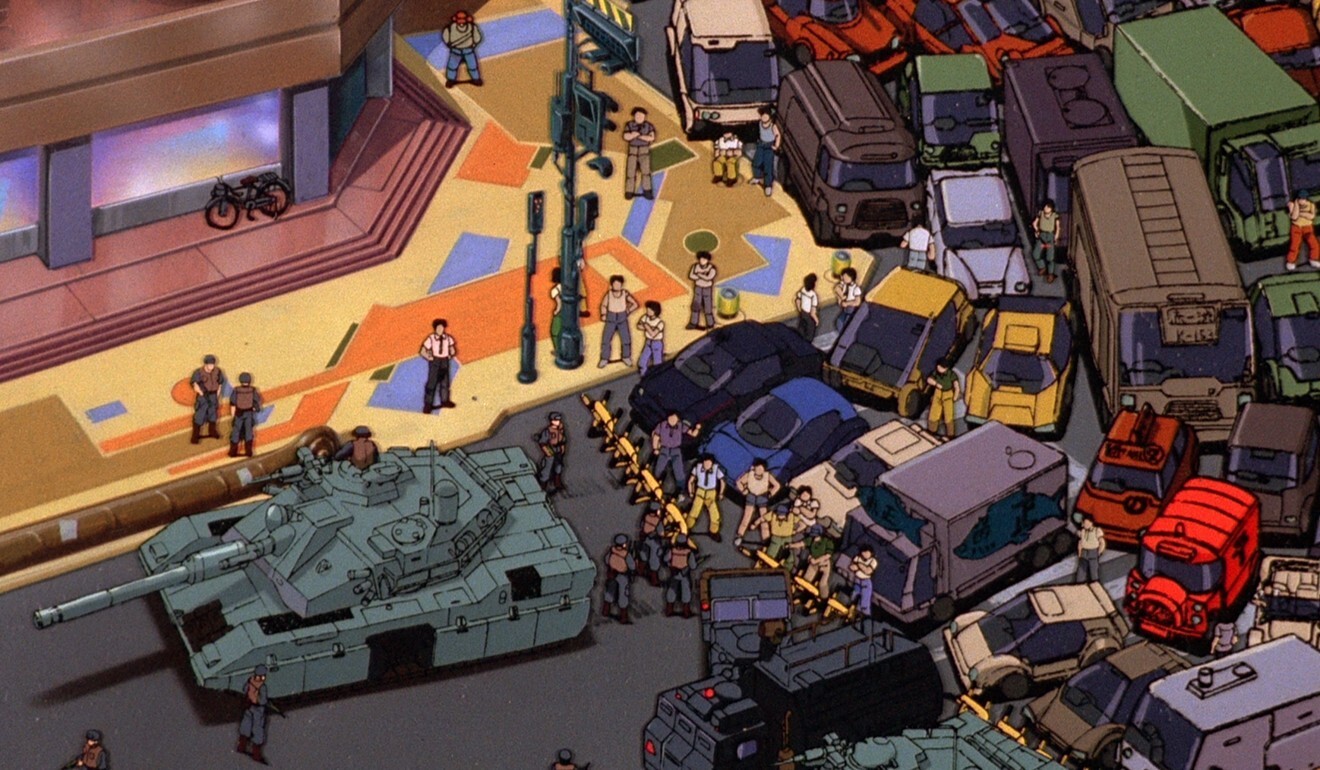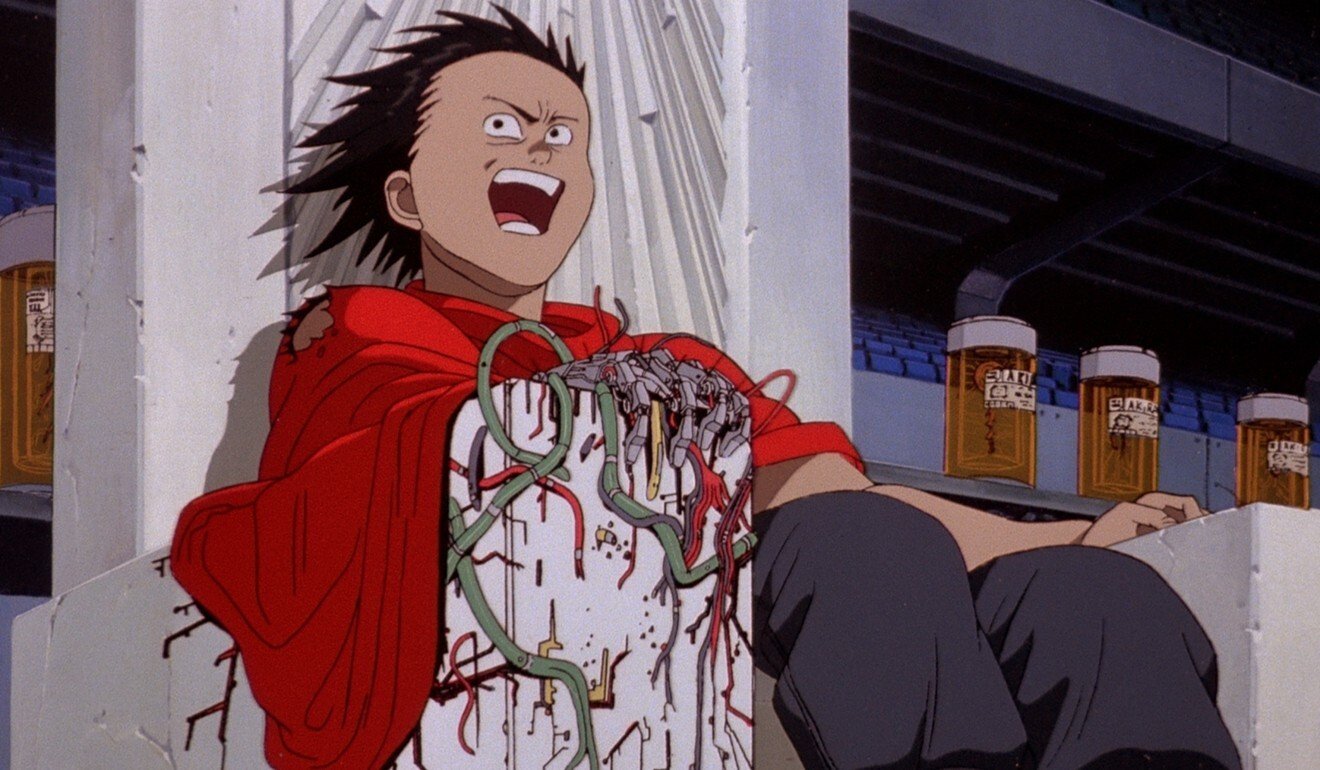
Japan movie magic: how anime Akira influenced Stranger Things and The Matrix, and predicted Tokyo hosting the 2020 Olympics and cancelling them
- Katsuhiro Otomo’s 1988 anime Akira is one of the most influential sci-fi stories ever made. A 4K restoration of the film has just been released on Blu-ray
- It predicted Tokyo’s hosting of the Olympics in 2020, and the cancellation of the event. A live-action remake, long mooted, has yet to see the light of day
When the phrase “Just cancel it!” began trending on Japanese social media platforms in late February – a reaction to the difficulties the Tokyo 2020 Olympics was facing with the coronavirus pandemic – one thing was clear: Katsuhiro Otomo’s stunning film Akira has not lost one shred of its impact over the past three-and-a-half decades.
First published in 1982, Otomo’s six-volume manga series, which led to his celebrated feature-length anime six years later, has long been hailed as one of the most influential sci-fi stories ever written. Everything from The Matrix to Stranger Things has drawn from its well. But as time has gone on, this cult cyberpunk tale set in “Neo-Tokyo” has felt increasingly prophetic.
Set in 2019, 31 years on from World War III, Akira deals with secret military projects, psychic children, hallucinations and at one point, a terrifying flesh mutation. But Otomo’s future vision also features bureaucratic corruption, attacks on press freedom and anti-government demonstrations and riots – the latter liable to chime with anyone who has lived in Hong Kong this past year or so.

In truth, Otomo was alluding to the bombs dropped on Hiroshima and Nagasaki at the end of World War II and the 1964 Olympic Games, held in Tokyo, when Japan reasserted itself on the global stage. But when the pandemic began to spread, eagle-eyed fans couldn’t help but nod to one scene in the film where “Just cancel it!” had been painted underneath a countdown clock that showed 147 days until the event began.
In February 2020, as pandemic concerns escalated, “Just cancel it!” began trending exactly 147 days before the real Olympics were due to start. In the end, the real games have been postponed until 2021 rather than cancelled – although given a vaccine for Covid-19 may be far away and the virus itself is far from under control, we could yet see that sentiment expressed in Akira borne out.
It’s yet another oddity in the Akira legacy, which – even without the postponement – has become increasingly prevalent in the pop culture firmament this past year. A new 4K restoration of the film has just been released on Blu-ray. This painstaking remastering has been in the works for years and yet – typical of Otomo’s uncanny ability to tap the zeitgeist – arrives now with the world in crisis.
Akira has long benefited from home entertainment releases to perpetuate its cult status; the English-language dub version, together with its original Japanese iteration, made over US$80 million on VHS over the years. Laser discs, special edition DVDs and Blu-rays all followed, as the film repeatedly ranked high in lists of the most influential anime and sci-fi movies of all time.
Last year being 2019 – the year the film is set – it was always going to see a renewed interest in Akira. Much the same happened five years ago with Back to the Future II, which takes place in 2015. But that comically predicated hoverboards and the arrival of Jaws 19 – nothing more. With Akira, the eerie predictions it made – coincidence or otherwise – have lent it far more prescience.

Back to the Future II was also the middle part of a trilogy that definitively came to an end. Whether fans like it or not, the sense is that there’s more to come from Akira. At last year’s Los Angeles Anime Expo, alongside the 4K restoration news, Otomo announced that an animated Akira TV series was in the works, in collaboration with Japanese animation studio Sunrise.
Unsurprisingly, no news was forthcoming about when it was due, or indeed if it would be a remake, prequel, sequel or spin-off. But suggestions were that the new series will explore the parts of the manga that never made it into the 1988 film. Given that it spanned 1,000-plus pages when it finally came to an end in 1990, that’s a lot of untouched story to get to grips with.
There is no question that Akira hasn’t yet been exploited in a way other franchises have. Even the video game market has been relatively slow to pick up on its potential. Only three Akira titles were ever released, the most recent being 2002’s PlayStation 2 effort Akira Psycho Ball, a pinball game that featured cut scenes from the film.

Even the long-mooted live-action remake of Akira has yet to materialise. In the 1990s, Sony intended to adapt it, only to cancel it due to budgetary concerns. Since 2002, rival Hollywood studio Warner Bros has owned the rights, but amid numerous scripts and rewrites, directors have come and gone including Stephen Norrington (Blade) and Jaume Collet-Serra ( The Shallows ).
Certainly, recent advancements in computer effects meant that, finally, the haunting beauty of Otomo’s Neo-Tokyo could be legitimately realised. But it wasn’t enough to convince other big-name filmmakers, including George Miller from Mad Max and Jordan Peele from Get Out , to sign on.
Then in 2017, Taika Waititi – hot off Thor: Ragnarok – was linked. “I actually love the books,” he told IGN. “I love the movie, but I would not do a remake of the movie. I would do an adaptation of the books.” Waititi also promised that he had no intention of ‘whitewashing’ the casting: “Asian teenagers would be the way to do it for me.”

It was just the right note to strike following the debacle over Ghost in the Shell earlier that year. Paramount’s live-action take on the manga series by Masamune Shirow – already the source for multiple anime films and TV series – was heavily criticised for casting Scarlett Johansson as cyborg-human soldier Major.
As good as his word, Waititi reportedly met young Japanese actors to potentially play Kaneda and Tetsuo, the teen bikers at the heart of the story, with the film earmarked for a May 2021 release date. But rumours of creative differences followed and Waititi elected to shoot Thor: Love and Thunder for Marvel.
Postponing Akira indefinitely, Warner replaced it with The Matrix 4 in the schedules – ironic given how influential Akira has been on the Wachowskis’ own landmark sci-fi series.

If Akira is to make it back to the big screen, it needs a director as visionary and uncompromising as, say, Denis Villeneuve from Blade Runner 2049 , who currently putting the finishing touches to his take on Frank Herbert’s sci-fi Dune. Then again, maybe this is one cyberpunk dream destined to elude Hollywood, preserving Otomo’s original for the masterpiece that it is.
For that, maybe we should be thankful.

 (1).JPG?itok=0BHk6odg&v=1665981271)